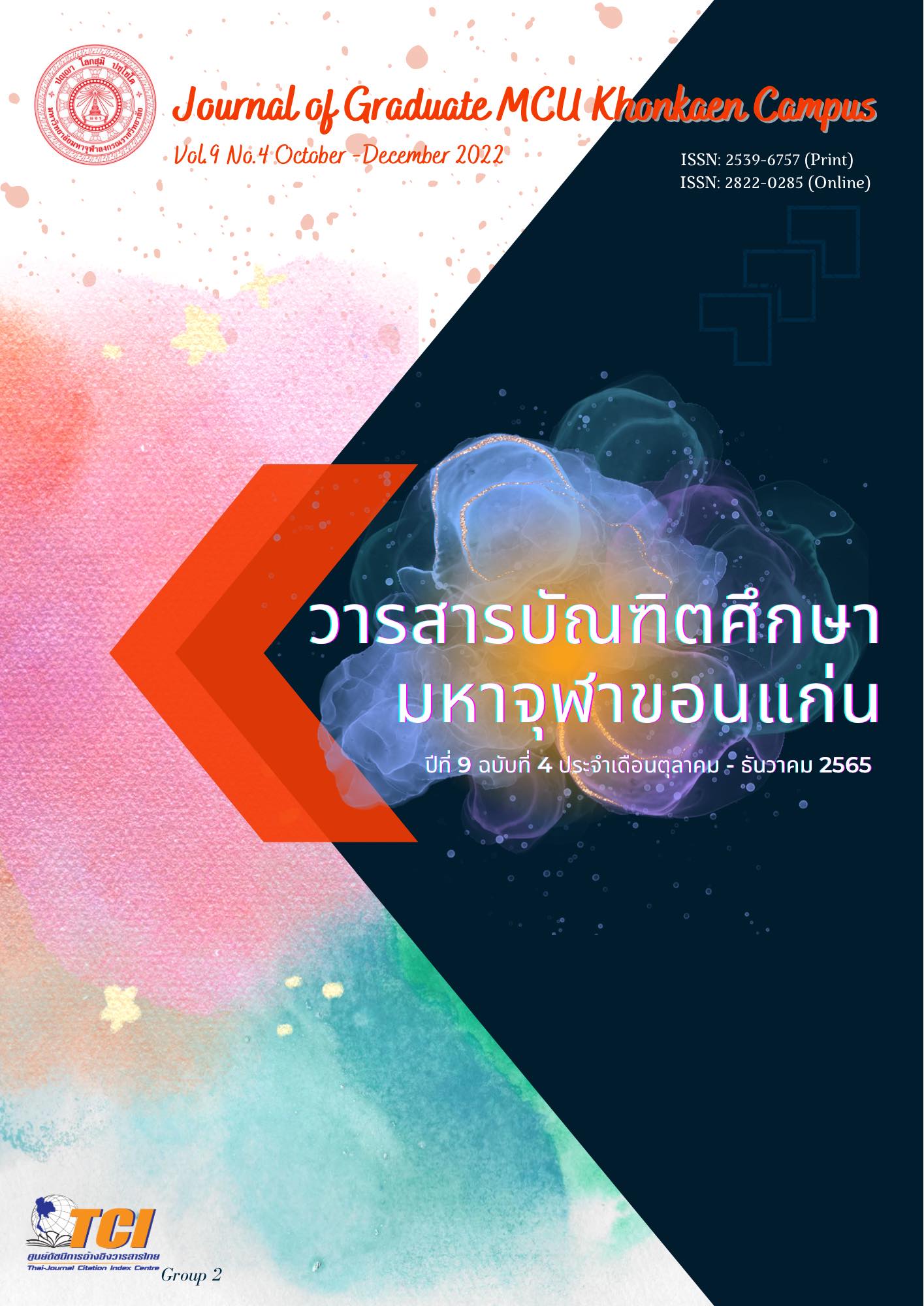Discourse Analysis : Temple will be Forsake Feudalism will be Proud Arrogant
Main Article Content
Abstract
One of the current problems of the sangha is that religious heirs are much less ordained. In some provinces that used to have a lot of monks, there are only a few monk left. The more cute little novices some temples are barely visible. The cubicle has only an empty room. most of them all flow into the city. some of the temples are the temples of the district primate level. there are less than 10 monks because at present there are fewer monks to learn. an important external problem is the inadequacy of the situation of the sangha act. disciplinary punishment, against monks who acted outside discipline, including dealing with those who seek the benefits of religion. the very important
internal problems are self-protection, precepts, discipline, and ecclesiasticalunity.
Management of sangha affairs in the information technology era it is the most important thing to preserve the dharma, discipline, and the sangha to be sustainable. But the
current situation reflects some behaviors that are not suitable for priest, destroying
religion, such as excessive media use, lay-like lifestyle habits such as self-driving by
claiming that the discipline does not forbid and himself. having a driving license (before ordination) is not illegal. the use of monk language that is woe along with the behaviors expressed today. If the clergy and the elders have positions Ecclesiastical administration and the monk-novice itself is still indifferent or neglect to use the haphazard regime. including the administration of the national buddhism office, etc. The future of buddhism will be dwindling and may be swallowed up by other religions and cultures. the answer to the future of buddhism can be found in the minds of the four assemblies of
buddhists
Article Details

This work is licensed under a Creative Commons Attribution-NonCommercial-NoDerivatives 4.0 International License.
References
กีรติ ศรีวิเชียร. (2542). ประวัติการศึกษาของสงฆ์. กรุงเทพฯ: ธรรมสภา.
กรุงเทพธุรกิจ. (2564). พุทธศาสนากับการพัฒนาไทยแลนด์ 4.0. สืบค้นเมื่อวันที่ 15 มกราคม 2565, จาก https://www.bangkokbiznews.com/blog/detail/641259
นิโคลัส เบนเนตต์. (2555). หน้าที่แห่งชีวิต. (โคทม อารียา, ผู้แปล), สถาบันสิทธิมนุษยชนและสันติศึกษา. มหาวิทยาลัยมหิดล.
พระมหาดนัย อุปวฑฺฒโน และอำนาจ บัวศิริ. (2558). รูปแบบการบริหารจัดการองค์กรสันติสุข : ศึกษา กรณีวัดปัญญานันทาราม อำเภอคลองหลวง จังหวัดปทุมธานี. วารสารสันติศึกษาปริทรรศน์ มจร., 3(1), 23-36.
พระครูธรรมธรนิเทศ อภิญาโณ และพระครูสุนทรเจติยาภิวัฒน. (2559). บทบาทของวัดในการเสริมสร้าง ให้เกิดสันติสุขในชุมชน. วารสารสันติศึกษาปริทรรศน์ มจร., 4(1), (ฉบับพิเศษ) 82-90.
พระมหาหรรษา ธมฺมหาโส. (2556). สถานการณ์พุทธบริษัทในสังคมไทย: ศรัทธาวิปริตหรือวิกฤติศรัทธา. สืบค้นเมื่อวันที่ 15 มกราคม 2565, จาก https://www.mcu.ac.th/article/detail/460
ศูนย์มานุษยวิทยาสิรินธร. (2558). ฐานข้อมูลจดหมายเหตุมานุษยวิทยา วิลเลียม เจ. คลอสเนอร์. สืบค้นเมื่อวันที่ 16 มกราคม 2565, จาก https://www.sac.or.th/databases/anthroarchive/collection_detail.
แสง จันทร์งาม. (2530). พุทธศาสนากับสังคมไทย. วารสารสังคมศาสตร์ปริทัศน์, 6(3), 125-144.
สุจิตต์ วงศ์เทศ. (2563). ศาสนา การเมืองสนองอำนาจรัฐ เวรทำกรรมแต่ง คนไม่เท่ากัน. สืบค้นเมื่อ 16 มกราคม 2565, จาก http://doh.hpc.go.th/bs/topicDisplay.php?id=478

